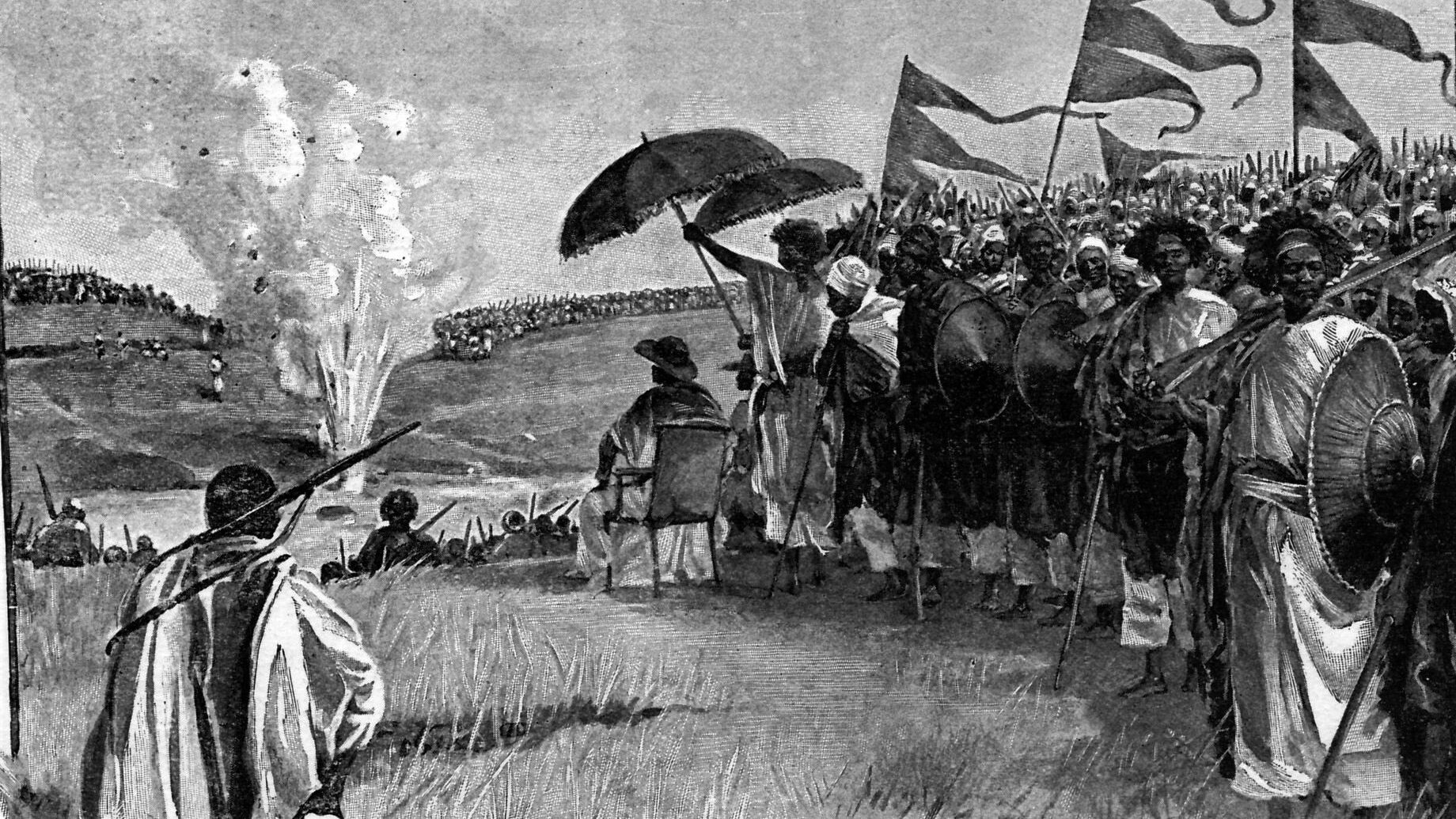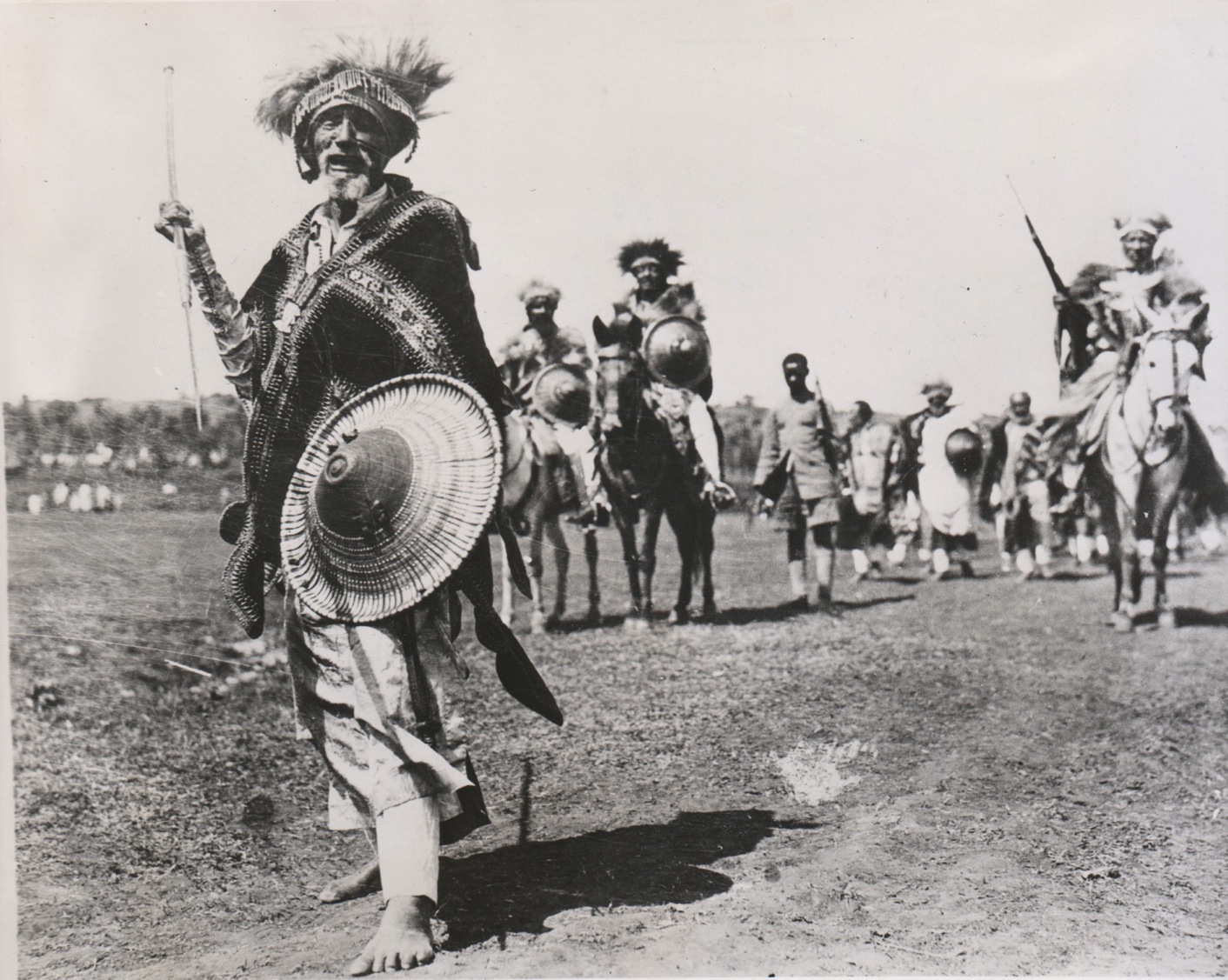Adwa Victory Day (Mäggabit 19)
Overview:
Date of Celebration: Adwa Victory Day is celebrated annually on March 2 (which corresponds to the 19th of Mäggabit in the Ethiopian calendar). This day commemorates Ethiopia’s **decisive victory over Italy at the Battle of Adwa in 1896.
Significance: Adwa Victory Day is a national holiday in Ethiopia that holds immense historical and cultural importance. It marks the triumph of Ethiopian forces under the leadership of Emperor Menelik II over the invading Italian army, which was attempting to colonize the country during the Scramble for Africa. This victory ensured that Ethiopia remained the only African nation to successfully resist European colonization.

Historical Context:
The Battle of Adwa:
The battle took place at the town of Adwa in the northern region of Tigray on March 1, 1896. Ethiopian forces, uniting diverse regional armies, confronted the Italian military, which sought to annex Ethiopia and expand its colonial empire. The conflict emerged from disputes over the Treaty of Wuchale and rapidly escalated into a full-scale battle.
The Italian Invasion:
In the late 19th century, European nations were aggressively seeking to colonize Africa. After having established control over Eritrea, Italy targeted Ethiopia, expecting an easy conquest due to its modernized military. However, the Italian forces, led by General Oreste Baratieri, underestimated the strength, unity, and strategic prowess of the Ethiopian army.
Emperor Menelik II's Leadership:
Emperor Menelik II united a coalition of Ethiopian forces from various ethnic groups, formulating a military strategy that was both tactically superior and highly coordinated. His exemplary leadership was key in orchestrating a defense that not only repelled the Italian advance but also resulted in a resounding victory for Ethiopia.
The Outcome:
The Battle of Adwa ended in a decisive Ethiopian victory, with significant Italian casualties and the capture of many soldiers. This victory preserved Ethiopia’s sovereignty, shattered European notions of military invincibility in Africa, and became a symbol of African resistance against colonization.

Cultural and National Significance:
National Pride and Unity:
Adwa Victory Day is a profound source of national pride for Ethiopians. The victory symbolizes the collective strength and resilience of the Ethiopian people in their fight against foreign domination. It unites the nation across ethnic and regional lines and serves as a powerful reminder of Ethiopia's historic ability to defend its sovereignty.
Symbol of African Resistance:
The Battle of Adwa stands as a beacon of hope and resistance for the entire African continent, demonstrating that European colonial ambitions could be successfully challenged. This victory has inspired liberation movements and continues to be celebrated as an emblem of African unity and defiance.
Inspiration for Pan-Africanism:
The triumph at Adwa resonated far beyond Ethiopia, sparking inspiration among African nations and leaders fighting for independence. It strengthened the Pan-African movement by symbolizing the potential of unified resistance and self-determination.
Global Recognition:
Adwa Victory Day has garnered international attention, especially among the African diaspora, and remains a rallying point for those committed to social justice and the fight against oppression worldwide.
How Adwa Victory Day is Celebrated:
- National Celebrations and Parades:
Adwa Victory Day is marked by grand national parades in Addis Ababa, featuring military displays, cultural performances, and ceremonial events that celebrate Ethiopia’s heritage and the significance of the battle. Soldiers, dressed in uniform and displaying national symbols, participate in these parades, showcasing the country's military might alongside vibrant cultural traditions.

- Speech and Reflection:
Ethiopian leaders, including the president and prime minister, deliver speeches that highlight the historic importance of the victory and its lasting impact on Ethiopia’s sovereignty. These speeches honor the legacy of Emperor Menelik II and the heroes of Adwa, reinforcing themes of national unity and resilience.
- Public and Private Observances:
Civic organizations, schools, and community groups host events such as historical exhibitions and educational programs that detail the events of the Battle of Adwa. Many families spend the day together, reflecting on the significance of the victory and visiting historical sites related to the battle, such as memorials and landmarks associated with Menelik II.
- Artistic and Cultural Displays:
Cultural expressions, including traditional dances, songs, and artworks, play an important part in the celebrations. Artists create murals, statues, and other works that depict key moments and figures from the battle, serving as enduring reminders of Ethiopia’s heroic past.
- Wreath-Laying and Memorial Services:
Public ceremonies often include the laying of wreaths at national monuments and memorial sites dedicated to the fallen soldiers. These acts of remembrance honor the sacrifices made by those who fought for Ethiopia’s independence and reinforce the nation’s commitment to preserving its sovereignty.
- Education and Awareness:
Schools and universities organize lectures and discussions focusing on the historical and cultural significance of the Battle of Adwa, ensuring that younger generations understand the legacy of the victory and its role in African resistance against colonialism.
Adwa Victory Day’s Role in Modern Ethiopia:
Unity and Nationalism: Despite Ethiopia's diverse ethnic makeup, Adwa Victory Day unites the nation, serving as a symbol of collective pride and strength.
Resistance and Independence: The battle stands as a powerful reminder of Ethiopia's successful resistance to European colonization and reinforces the importance of safeguarding national sovereignty.
Inspiration for Africa: The victory at Adwa has inspired not only Ethiopians but also other African nations, becoming a symbol of empowerment and the potential for self-determination across the continent.
Conclusion:
Adwa Victory Day is a momentous occasion in Ethiopia, a celebration of the nation’s resilience, independence, and the courage shown during the Battle of Adwa. It is a time to honor the sacrifices of the heroes who fought for freedom, reflect on the enduring legacy of unity and resistance, and reaffirm Ethiopia's commitment to preserving its sovereignty.
For Ethiopians, Adwa Victory Day is more than a historical memory—it is a living symbol of national pride and a reminder that through unity, determination, and self-reliance, freedom and independence can be successfully defended, inspiring generations both in Ethiopia and across Africa.